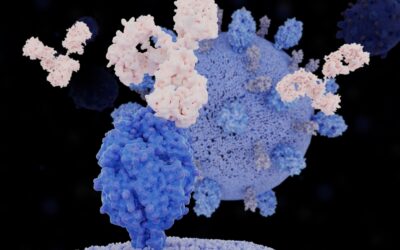Many drug development companies are prepared to move their programs forward and effectively submit preclinical packages to regulatory bodies. In the challenging business of drug development, disruptions and obstacles are elements that must be part of the conversation so that companies can effectively prepare for them. Whether you’re just launching your program or ramping up your testing efforts, you’ll want to do everything you can to move your program forward smoothly.
While overcoming testing obstacles has always been a component of drug development, there are certain internal and industry-wide constraints that companies must address head-on. Make sure you are setting your program up for success with the following five tactics.
Planning to push forward
With the unpredictability of global conditions, the drug development process is more complex than ever. Preparing for the preclinical testing stage is critical to avoid further setbacks. Consider these five strategies during this crucial phase.
Ample lead time
With many variables out of your control, reevaluate your traditional development timelines and incorporate ample lead time into the stages most at-risk for delays. For example, if manufacturing samples have been difficult under current conditions, make sure to give your team extra time to prepare the materials needed before your next scheduled study.
Supply chain preparation and planning
Conducting preclinical testing in-house requires extensive planning with both laboratories and suppliers to ensure you have the resources and capacity to carry out your studies. If you plan to use internal resources for this stage, make sure you plan for critical reagents, equipment, testing systems, personnel, and other supply chain necessities.
When outsourcing your preclinical testing needs, inquire about your laboratory testing partner’s supply levels and contingency plans if critical supplies become scarce. When studies have unique needs, such as requiring a specific species or a particular age of a species, confirm that your testing partner will be able to fulfill all your study requirements. Laboratories with these valuable materials on hand or unique upstream integration strengthens their ability to continue testing amid global scarcities or supply chain disruptions.
Reputable shipping partner
A drug development program can be derailed by unreliable shipping or mistakes in the process, especially when shipping biological materials internationally. While ramping up your program, it’s imperative to canvass shipping partners and enter agreements that are reputable and deliver when you need them to. Additionally, make sure you understand international shipping protocols. Your laboratory testing partner can assist in understanding these guidelines while ensuring that your compound is shipped correctly and on time.
Seek strong laboratory partnerships
The right laboratory can eliminate a fair amount of the guesswork during preclinical testing. Make sure that you have trust in this relationship and that they deliver clear results on the appropriate studies. A laboratory testing partner should cater their communication towards your needs to keep you updated on study progress and outcomes. Laboratories should treat every client’s molecule with urgency and importance, regardless of the program’s size. Selecting a laboratory that is truly operating as your partner will best set your program up for success.
Regulatory knowledge
Some drug development companies have teams dedicated to regulatory updates and compliance, though this may not be the case for every company. Whether it is your in-house team or an outsourced third party, it is critical to be aware of the changing regulatory landscape and regional differences. Make sure that gaps in regulatory expertise don’t weaken your submission packages or study design. Whether it is understanding the Investigational New Drug (IND) application or preparing for in vivo PK and ADME study requirements, regulatory knowledge can help your team plan a successful preclinical program. Connect with your laboratory testing partner on their regulatory standing and expertise.
While conditions vary across the globe, we are all experiencing similar challenges as programs ramp up. These five strategies will help put – and keep – your drug development program on track. Talk to your laboratory testing partner about their capabilities and protocols to advance your program to the next phase. For more industry insight and program support, check out the WuXi AppTec Laboratory Testing Division LinkedIn and blog.
As a global company with operations across Asia, Europe, and North America, WuXi AppTec provides a broad portfolio of R&D and manufacturing services that enable the global pharmaceutical and life sciences industry to advance discoveries and deliver groundbreaking treatments to patients. Through its unique business models, WuXi AppTec’s integrated, end-to-end services include chemistry drug CRDMO (Contract Research, Development and Manufacturing Organization), biology discovery, preclinical testing and clinical research services, helping customers improve the productivity of advancing healthcare products through cost-effective and efficient solutions. WuXi AppTec received an AA ESG rating from MSCI for the fourth consecutive year in 2024 and its open-access platform is enabling around 6,000 customers from over 30 countries to improve the health of those in need – and to realize the vision that “every drug can be made and every disease can be treated.”


